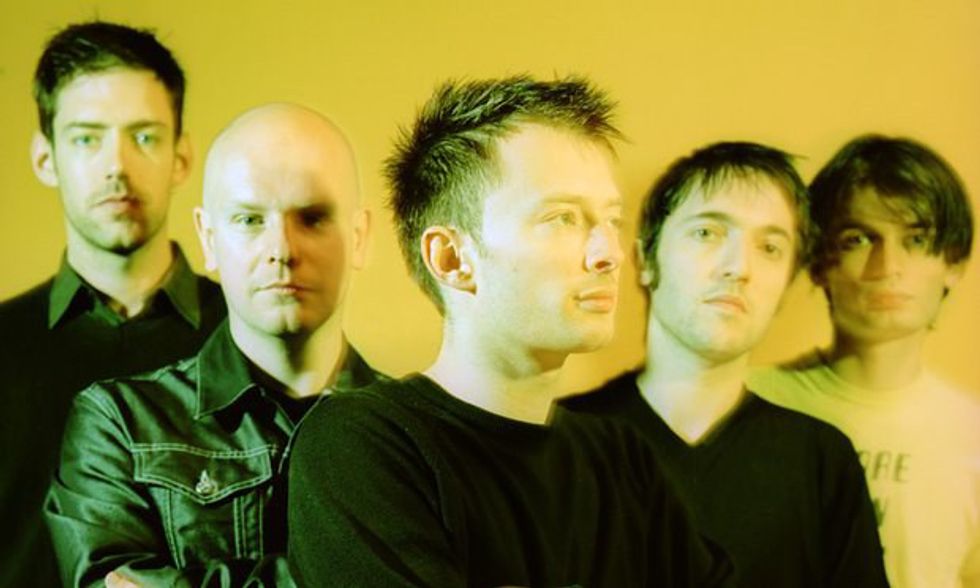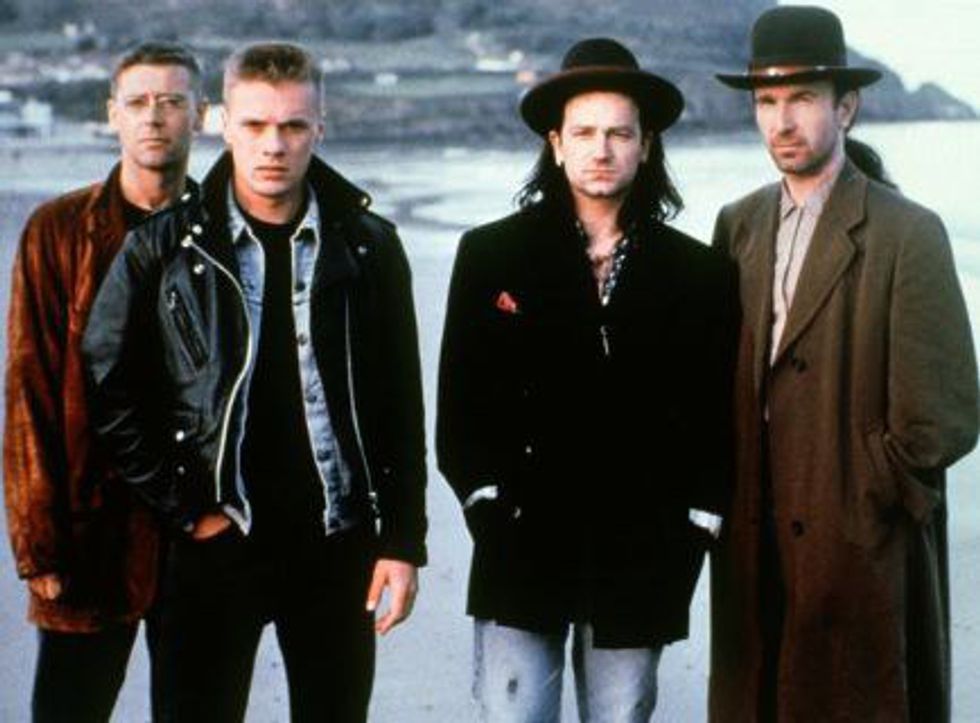Radiohead's unexpected electronic turn with Kid A has become part of music legend on par with Dylan going electric. It's an event that's simultaneously overrated and underrated in the way that all major artistic moments are. The current ubiquity of electronic music in the mainstream music scene would make such a move – a rock act going electronic – feel not only typical to today's scene, but possibly even desperate, like a last ditch effort to rekindle some excitement by jumping on a popular bandwagon. But when Radiohead did just that in 2000 it felt revolutionary, bringing with it all the hype and derision any such act of musical heresy inevitably invites. Radiohead were one of the biggest bands in the world after releasing their magnum opus OK Computer, an album that took them from performing top tier rock music in the mold of bands like U2 and REM to creating a style and sound all their own. While OK Computer's intense paranoia, alienation, fear and anger weren't exactly themes well-suited to large audiences, the sounds the band was making to accompany them were perfectly suited to headlining festivals and playing to tens of thousands of adoring alt rock fans who had a soft spot for sonic experimentation. The legend goes that they were set to become the next U2, but then lead singer and songwriter Thom Yorke bought the entire Warp catalog and changed the course of the band's history.
Radiohead in 2000, Kid A freshly released.
At that time, alt rock was the genre du jour and electronic music was seen by the masses as largely a dance craze for drugged-up European clubs, not a genre of serious artistic endeavor. So for Radiohead to turn around and embrace electronic music over the three guitar assault that made them famous was unfathomable, and yet not only did they pull it off, it was a roaring success going platinum in Britain during its first week and eventually in the US, a first for the band. It would be a bit like if The Rolling Stones not only released a disco album in 1970, but if that album was also arguably their best work and sold millions. It was this drastic shift in styles that took Radiohead from being the next blank to becoming legends in their own right. Bands like The Beatles secured their spot in history by pushing the envelope and trying new things, but The Beatles where working within a framework where to the public's ear almost everything they were doing was new; they weren't subverting expectations as much as defining them.
But with Kid A, Radiohead were going against all common wisdom about how to handle their new found fame and renown. The natural next step would be to continue to push and refine the sound they created in OK Computer, refining and iterating the musical ideas that were taking them to the top. Instead, Thom pushed the band into uncharted beat-driven territory where they would all be playing new instruments and not every band member would be on every track. This experimentation brought strife and insecurity to a band already struggling to grapple with their meteoric rise to fame. The making of Kid A almost destroyed the band. Ultimately, we know it didn't, and in fact led the band into a period of creative fertility that led to more than one critic calling them “The Most Important Band in the World.” This type of stark transition, from a popular style to a largely maligned one, signaled a commitment to artistic integrity over commercial success that gave the band an unshakeable reputation for being musical pioneers that was almost entirely unprecedented for a band of their size. Almost.
U2 in 1988, with Rattle and Hum fighting for a spot on the charts.
In 1991, U2 were possibly the biggest band on Earth. Their last album, Rattle and Hum, was met with the sort of vicious critical backlash that would end most bands, yet the album was beloved by fans and still sold over 14 million copies. Their 1987 album The Joshua Tree is one of the best selling albums of all time with 25 million copies sold and was responsible for rocketing the band into super-stardom as they transcended from a band deftly executing familiar styles to creating a sound entirely their own (sound familiar?). Despite all their success, however, by 1990 the band found themselves at an artistic crossroads. Where Radiohead would later flee from critical and commercial acclaim with a desire to reinvent themselves and fight the temptation to coast on their success, U2 would meet their critics head on with a desire to reinvent themselves and fight their commercially successful image as overly sincere and self serious rock messiahs. Following in the footsteps of the original artistic shape-shifter, U2 would head to Berlin as Bowie had done a little over a decade before to find new artistic inspiration. The sessions that followed were riddled with tension and infighting of a sort that almost led to the band's dissolution. Ultimately, however, the band came together around their new sound and released what is arguably their greatest album, Achtung Baby.
Where The Joshua Tree was heavily rooted in Americana and stadium rock sounds, Achtung Baby would draw from electronic music and hip hop to once again create a new sound that was uniquely U2. Achtung Baby was an enormous critical and commercial success, completely undoing the critical backlash they'd received from Rattle and Hum and earning them almost universal artistic respect for pushing the envelope of their sound. This would lead to a period of renewed creative energy that would result in the most experimental and challenging work of the career. The mirroring of U2's trajectory in Radiohead's career is more than just superficial – much of Radiohead's music is influenced by U2 in ways both obvious and not – and next week I'll dig deeper into just how U2's foray into the unknown, brought on by an internal drive to challenge their critical and popular perception, paved the way for Radiohead's more famous transition from popular stadium band to arty critical darlings.




















